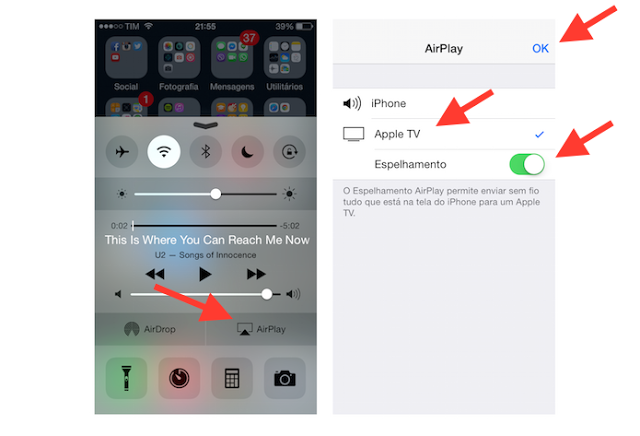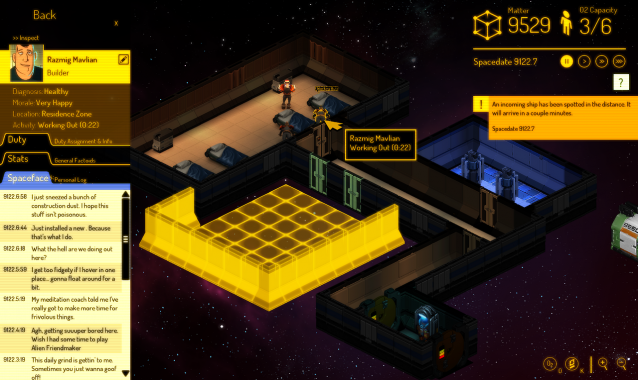In Civilization, a unit is essentially anything that you can move around the map. They are broken down into the categories of combat, non-combat, and orbital. Military units participate in skirmishes. Non-combat units are used in trades, constructing improvements, and establishing colonies.
Cities are used to produce units using the regular construction process. Each unit has a production cost, and many have some sort of technological prerequisite for production. Some units may have a maintenance fee.
Unit movement will essentially be your main focus during a match. You will need to tactically decide the path, placement, and actions of your units. You may be searching for artifacts, surrounding your enemies, or exploring uncharted areas.
Your movement will be based on the tile system. No two units may stop on the same tile. Your unit will have a limited number of moves per turn, although you may move further on roads in neutral or friendly territory. Units may move across land, air, and sea.
Sooner or later, you may decide that your civilization needs to expand beyond a single city. To do this you may produce a colonist. Colonists are used to establish outposts which can eventually evolve into a fully functional city. Colonists will temporarily halt food production while being constructed.
Exploring is the best way to scout out new settlement locations, observe neighboring civilizations, begin expeditions, and locate artifacts and resources. Simply put, explorers are your basic tool for finding out what’s going on in the world around you so you may properly prepare. Do not underestimate the importance of this light unit.
Workers are units that will construct improvements to maximize the efficiency of your city. They can be set to automatically construct improvements to easily assist new players. Workers will construct building improvements, roads, and magrails within your boarders.
Trade convoys are used to construct trade routes between cities, outposts, and stations. They will assist in the improvement of your city’s production and growth. Trade convoys are non-combat units and must be protected by your military. They run the risk of being overrun by aliens or neighboring civilizations.
Combat units are all about offense and defense. Whether you are defending your traders from hostile aliens, going to war with your neighbors, or simply defending your boarders, your combat units should do most of the fighting. They specialize in melee or ranged attacks. Any unit that does not specialize in fighting, and must be defended, is considered a non-combat unit.
Combat is broken down into two main groups: melee and ranged. Your combat units will specialize in one of the two. Combat is simply a fight between any two units. You cannot attack another civilization’s unit unless you intend to declare war against them. You may attack an alien unit at any time. The game will display the odds of winning before initiating a skirmish.
City Screen
You may click on your city’s name to access the city screen. You are able to manage and control your city directly through this menu. This is essentially your way to purchase new land, manage productions, view resources, observe your city’s health, or make any other tweaks to your city.
Exploration
Much of your time will be spent exploring the planet. Use your explorers to clear the fog of war so you can observe what’s going on around you. Exploration can lead you to artifacts, research pods, new outposts, alien nests, or a number of other discoveries.
Explorer units may also lead you to artifacts and expeditions. The resources gained from these discoveries can assist your cities. Each expedition takes a few turns to complete, and will consume one expedition module.
Quests
You will need to make decisions throughout the game that may help, or hurt, your civilization. While the end-game of your decisions are not immediately known, each decision will come paired with an immediate reward. It may include benefits such as extra resources. Some decisions may also lead you closer to victory, and will be labeled either harmony, supremacy, or purity.
Development
You’ll start developing your city from the very first turn. After settling on resourceful land, you’ll continue to use workers to construct improvements. You may construct trade routes, roads, mines, or farms. You can settle new cities, and research new technologies that will broaden your production choices. Your overall goal will be to develop a continuously growing, prosperous, and healthy civilization.
Resources
You will have full control of the resources located in the land that you control. They will provide your city with food, culture, technology, productivity, or other special bonuses. There are basic and strategic resources. Basic resources will provide you with necessities, while strategic resources can be used for advanced purposes such as upgraded military units and special technology.
Health
Your city’s health will affect growth, research, culture, and military efficiency. You can easily remember how to stay healthy by knowing that a higher population often means less health. High populations will require more basic resources. The more cities you have, the harder it will be to remain healthy.
You can remain healthy by constructing beneficial buildings such as clinics and Pharmalabs. Technological advancements can unlock the ability to construct more buildings that can boost health. Following the Prosperity virtue path will grant you bonus health, as will constructing certain wonders. Finally, be sure to maintain a manageable population and provide them with plenty of basic resources.
Virtues and Culture
Culture is a resources that allows you to expand your boarders and develop virtues. Follow the path of government and academics to focus on culture. Virtues develop your overall goal for the match. You may focus your virtues on might, prosperity, knowledge, industry, or a combination of them.
Might is a commitment to military and power. Prosperity is all about health, energy, and growth. Knowledge will assist your technological advancements. Finally, industry focuses on wealth and city productivity.
Relationships
Unless you plan to annihilate the other colonies, you should probably form healthy relationships with neighboring civilizations. You may form alliances in preparation for war, or you may discuss cooperation agreements if you are not ready to commit to anything deper. Friendships offer mutual benefits such as increased trade efficiency, open boarders, or even defense from your enemies.
If you do plan to annihilate your enemies, you may demand resources, publicly condemn colonies, or just overall bully them. Certain diplomatic actions can begin to degrade a relationship. For example, a relationship may degrade if you form a friendship with a colony’s enemy. Also, if you are at war with a colony, and a third colony becomes friends with them, your relationship with the third colony will degrade.
Trading
If you want to maximize the amount of energy and resources pouring into your city, it is a good idea to set up trade routes between cities. You may set up trade routes between your own cities, stations, or other colonies. Leaders can be traded with through diplomacy. You may trade favors, basic or strategic resources, or even entire cities.
Your trade routes will be vulnerable to attack, and will need to be protected by your military. The extra manpower needed to protect your trade system will be worth the maintenance in most cases. Trading can be the difference between a starving, unhealthy colony and a prosperous one.
Strong Military Presence
Even if you are not a civilization that focuses on might, you will want to develop a strong military presence. There will be a constant need for military. Your non-combat units such as workers and traders, will need to be protected. You may also find yourself surrounded by alien creatures native to the planet. Even if you do not start diplomatic conflicts, your colony will need firepower.
Furthermore, you do not want to be unprepared in the event of a war. Other colonies may view you as weak, and may try to intimidate you if it seems as though you cannot fight back. Simply be prepared to defend your cities if the need arises.
War
Declaring war is a diplomatic decision to begin a hostile relationship with another colony. Both sides will immediately begin fighting, so it is advised to build up your military before going to war. You may not invade a colony with closed boarders without starting a war first.
Ending a war can be tricky. Two colonies can form a mutual agreement to negotiate peace. If both sides do not agree, the war will continue. Negotiating peace can be beneficial. If you are in the right position, you may demand something in return for peace. This means that starting a war can be a good way to acquire cities or resources through captured annexation or negotiation, although it is very risky. Enemy cities may also be destroyed during war.
Return to the Main Walkthrough Page
Victory Preparation
Before preparing for victory you must determine which affinity you are following. Each affinity focus has a specific victory that may be achieved by your civilization. Furthermore, there are two universal victories that will always be available to all affinity focuses.
At any given time you may work to achieve contact, domination, or your affinity victory. You will also be victorious if you have the highest score upon reaching the final turn. Time will run out after 500 moves in a standard game, but the move limit varies depending on the game pace.
Failure
Victory is not assured, even if you survive the test of time. Your civilization may fail if another colony completes a victory condition first. You will also fail if you lose all of your cities, or if you do not have the highest score after the final turn.
Domination
Domination is a universal victory that can be achieved by outliving all of the other colonies on the planet. First, you must make sure that you remain in possession of your original capital city . If you do not have your original capital, you cannot achieve this victory. However, you may recapture your original city if you lose it. Next, you must destroy or capture the capital city of every colony on the map . If you are the last colony standing, you will achieve domination.
Contact
Contact is a universal victory that requires the player to make contact with an advanced alien race. It is important to focus on your economy to achieve this victory. The victory conditions require you to discover The Signal, decode The Signal, construct the Beacon, and activate the Beacon .
The Signal can be discovered by completing the following steps. First, complete the Transcendental Equation project. Next, send a Deep Space Telescope into orbit. Alternatively, you may have an explorer investigate a Progenitor Ruins site. Completing two of the steps will reveal the signal within a few turns.
The Signal may be decoded by completing the Decode Signal city project. Once it has been decoded, you will be able to produce the Beacon as a planetary wonder. The Beacon can be activated by spending 1,000 energy resources on it. The wonder will consume all of your surplus energy until it is complete. It may be disabled or resumed at any time without penalty. Once it is completed, you will achieve contact victory.
Emancipation (Supremacy)
Emancipation is an affinity victory that requires you to construct the Emancipation Gate and send an army back to Earth to emancipate them from their old ways. The victory conditions require you to contact Earth, construct the Emancipation Gate, and send military units through the gate .
To contact the Earth, you must construct a Lasercom Satellite and launch it into orbit. After Earth has been contacted, you will be able to construct the Emancipation Gate planetary wonder. Once it has been completed, you must begin to sacrifice military units to the gate. You may send one unit into the gate each turn. The strength of the combat unit will be added to the gate’s progress until your Earth military is strong enough to take control of the ancient planet.
The Promised Land (Purity)
The Promised Land is an affinity victory that requires you to bring the citizens of Earth to your new-found home. The victory conditions require you to contact the Earth, construct the Exodus Gate, summon the Earthling Settlers to the gate, and shelter the new citizens .
You may contact the earth by launching the Lasercom Satellite into orbit. Once the Earth is contacted, you will be able to construct the Exodus Gate planetary wonder. Next, you may summon one Earthling Settler unit per turn by activating the gate.
While you are producing the new Earth units, you must begin to shelter them. This can be done by construct the special Earthling Settlement improvement literally anywhere on the planet. Each settlement can hold up to six Earthling Settlers. The settlements are vulnerable and will need to be protected. Continue to shelter the new units until the progress score is completed.
Transcendence (Harmony)
Transcendence is an affinity victory that requires you merge all consciousness to create a planetary singularity of all living things. The victory conditions require you to contact the Planet’s Consciousness, construct the Mind Flower, and merge all consciousness . It is recommended that you focus on technology.
Branch out your technology web towards harmony until you can construct the Mind Flower planetary wonder. Once the wonder has been constructed, the Mind Flower will begin to merge consciousness between the life and the planet. Planetary life may react violently during the merge, so you may want to have a military ready to protect your colony.
Victory progress can be boosted by constructing the Mind Stem and Xeno Sanctuary buildings. Simply continue to protect the Mind Flower until the merge is completed.
Return to the Main Walkthrough Page






